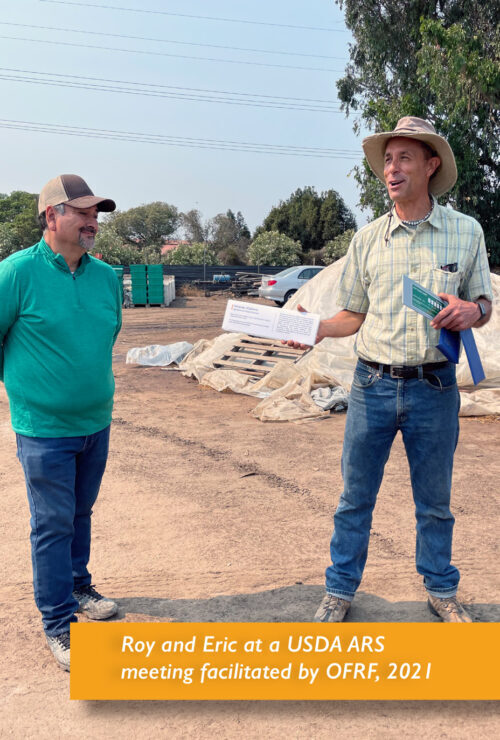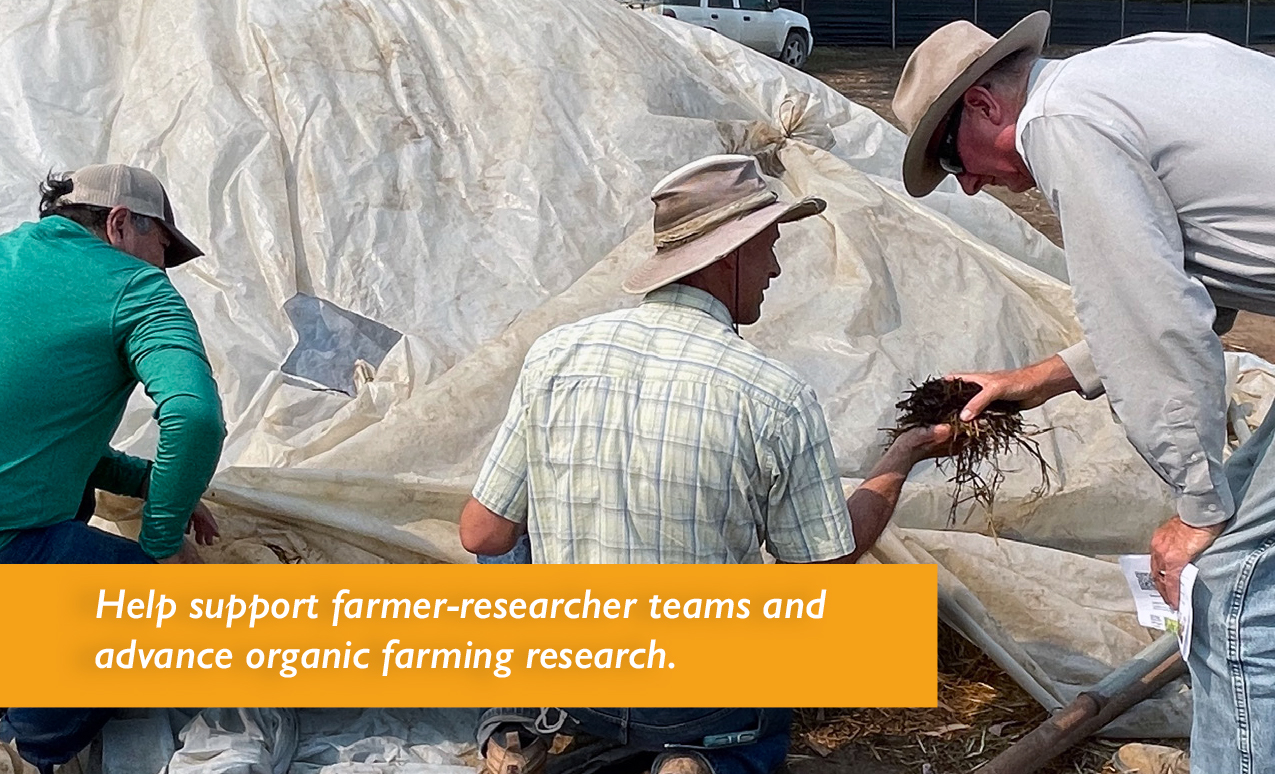
Over 20 years ago, I joined the OFRF team to help advocate on behalf of organic farmers across the country. Organic was a fledgling industry with farmers in grave need of science-based resources and support. As part of these efforts, OFRF successfully advocated for Congress to create a new staff position at USDA’s Agricultural Research Service (ARS) Salinas research station that would focus fully on organic agriculture research, the country’s first.
 Dr. Eric Brennan, the scientist who took that role 20 years ago and continues to hold it today, was soon awarded an OFRF on-farm research grant so he could study planting arrangements and seeding rates of cover cropping in organic agriculture. Fast forward to 2021, he has collected nearly two decades’ worth of research that has helped dramatically increase the amount of cover cropped acres in California, and is still the only dedicated organic researcher at ARS in the country.
Dr. Eric Brennan, the scientist who took that role 20 years ago and continues to hold it today, was soon awarded an OFRF on-farm research grant so he could study planting arrangements and seeding rates of cover cropping in organic agriculture. Fast forward to 2021, he has collected nearly two decades’ worth of research that has helped dramatically increase the amount of cover cropped acres in California, and is still the only dedicated organic researcher at ARS in the country.
We continue to provide grants for innovative on-farm organic research like the grant Eric received 20 years ago, and advocate for additional USDA support of organic research and education, particularly as our climate changes and farming become even more challenging. Our 2021-22 research grant cycle focuses on climate resilience and mitigation, and prioritizes farmers and early career researchers. We are excited to announce that we are reserving half of our 2021-2022 funding for Black, Indigenous, and People of Color (BIPOC) applicants.
 Researching organic farming systems is a collaborative effort. For nearly a decade, Eric has partnered closely with organic farmers, including Roy Fuentes, a local strawberry farmer. Roy is a second-generation farmer with a desire to improve his organic farming methods. Since Eric is the only researcher at the Salinas station without a technician, Roy’s support is critical to the success of their research and they estimate Roy and his team donate at least $120,000 of in-kind support annually to the ARS organic research program.
Researching organic farming systems is a collaborative effort. For nearly a decade, Eric has partnered closely with organic farmers, including Roy Fuentes, a local strawberry farmer. Roy is a second-generation farmer with a desire to improve his organic farming methods. Since Eric is the only researcher at the Salinas station without a technician, Roy’s support is critical to the success of their research and they estimate Roy and his team donate at least $120,000 of in-kind support annually to the ARS organic research program.
Most recently, the data Eric collected has informed a California EPA regulation, helping improve incentives for use of cover crops in 540,000 acres of irrigated land on California’s Central Coast region. Eric and Roy’s work is critical to the success and growth of organic farming. “With organic farming, there are always more studies to be done,” says Roy, and we need your help ensuring more applicable research is conducted so farmers can make informed decisions.
As the organic movement grows and our climate continues to change, farmers need additional science-based resources and research so they can continue to be successful. This is the moment for us to better support existing organic farmers and bring more acres into organic.
Research that Eric and Roy conduct, along with research from countless other farmer-researcher teams across the country, doesn’t get into the hands of farmers on its own. Your donation allows us to develop free and easily accessible science-based research tools and outreach materials, and advocate for additional federal resources and positions like Eric’s. Join us today to ensure farmers and our food system are resilient to climate change and an ever-changing world.
We are extremely grateful for your past and future support of our work, our team, and our community. Thank you for helping to build an organic future with us!
Best,

Brise Tencer


